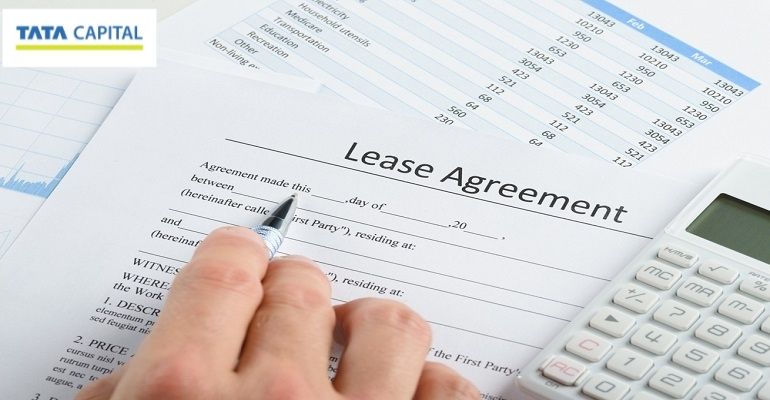Get the Tata Capital App to apply for Loans & manage your account. Download Now
-
Loans for You
Personal loan starting
@ 10.99% p.a- Instant approval
- Personal Loan Hybrid Term Loan
All you need to know
Personal loan for all your needs
Calculator
Check Your Credit Score
Higher credit score increases the chances of loan approval. Check your CIBIL score today and get free insights on how to be credit-worthy.
Check Credit Score
Home Loan with instant approval starting
@ 7.75% p.a- Instant approval
- Easy repayment
All you need to know
Home Loan for all your needs
Calculators
Know MoreRegister as a Selling Agent. Join our Loan Mitra Program
Check Credit ScoreCheck Your Credit Score
Business loan to suit your growth plan
- Collateral-free loans
- Customized EMI options
All you need to know
Business loan for all your needs
Calculators
Looking for Secured Business Loans?
Get secured business loans with affordable interest rates with Tata Capital. Verify eligibility criteria and apply today
Know More
Explore Used Car Loans
Explore New Car Loans
Explore Two Wheeler Loans
Calculators
Avail Loan Against Securities up to ₹40 crores
- Quick access to finance
- Zero foreclosure charges
All you need to know
Explore Loan Against Securities
Check Your Credit Score
Higher credit score increases the chances of loan approval. Check your CIBIL score today and get free insights on how to be credit-worthy.
Check Credit Score
Avail Loan Against Property up to ₹ 10 Crores
- Lower Interest Rates
- Longer Tenure
- Flexible Repayment Options
All you need to know
Loans for all your needs
Calculators
Get Education Loan up to Rs. 2 crores
- Pre admission sanction
- Attractive interest rates
All you need to know
Calculators
Request a CallbackWant To Know More?
All you need to know
Calculators
Request a CallbackWant To Know More?
All you need to know
Calculators
Request a CallbackWant To Know More?
-
Loans for Business
Digital financial solutions to aid your growth
- Simple standard documentation process
- Quick disbursal
Most popular products
Financing solutions tailored to your business needs
- Quick approvals
- Flexible payment options
Our Bestselling Products
Avail Term Loans up to Rs. 1 Crore
- Customise loan tenures as per your needs
- Get your loan processed, sanctioned and funds disbursed digitally
Avail Digital Equipment Loans
up to Rs. 1 Crore- Attractive ROIs
- Customizable Loan tenure
Avail Leasing solutions
for all asset classes- Up to 100% financing
- No additional collateral required
Ensure your business’ operational effeciency with ease
- Wide range of equipments covered
- Minimum paperwork
Most Popular products
Commercial Vehicle Leasing
- Up to 100% Funding
- Customized Solutions & Flexible Lease Options
-
Investment
A personal finance app, your one-stop shop for comprehensive financial needs - SIP, Mutual Funds, Loans, Insurance, Credit Cards and many more
- 100% digital journey
- Start investing in SIP as low as Rs 500
Visit Website Download AppCalculators
All you need to know
Wealth Services by Tata Capital
Personalised Wealth Services for exclusive customers delivered by a team of experts from a suite of product offerings
- Inhouse research & reports
- Exclusive Privileges & Offers
Calculators
All you need to know
-
More
Protect your family against unforeseen risks
Avail any of the Insurance policies online in just a few clicks
Bestselling insurance solutions
Quick Links for insurance
Motor Insurance
Life Insurance
Health Insurance
Other Insurance
Investment
-
Insurance
Protect your family against unforeseen risks
Avail any of the Insurance policies online in just a few clicks
Choose from our list of insurance solutions
-
Apply
Quick Links for insurance
Motor Insurance
Life Insurance
Health Insurance
Other Insurance
Investment
-
Offers
- Quick Pay
-
-
Offers & Updates
-

Sign in to unlock
special offers!You are signed in to unlock special offers!
 Data Loading Please Wait !!
Data Loading Please Wait !! -
Login

 5 mins read
5 mins read


 Previous Post
Previous Post







